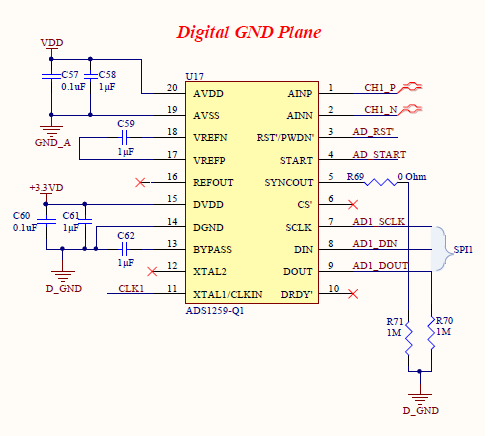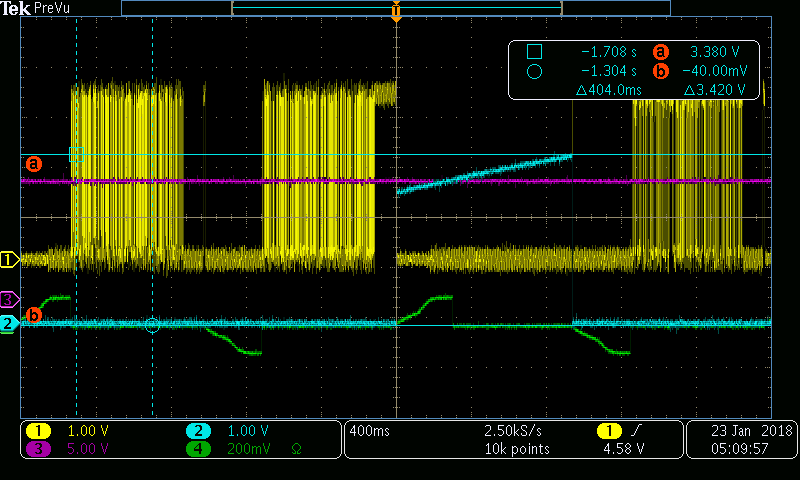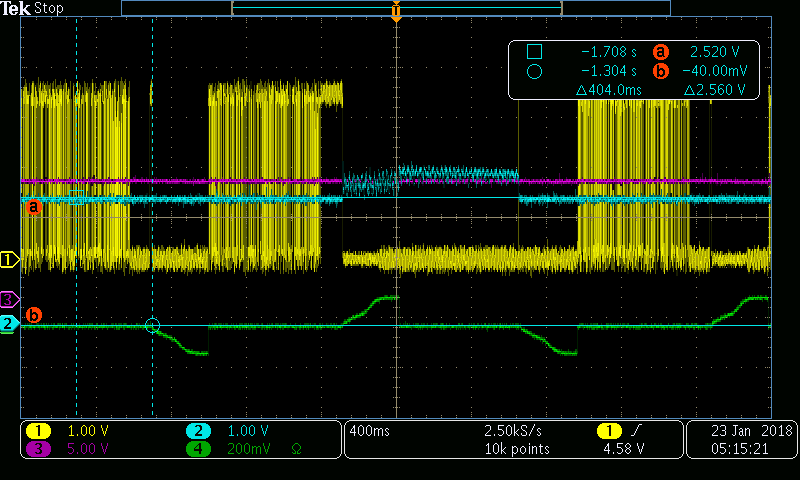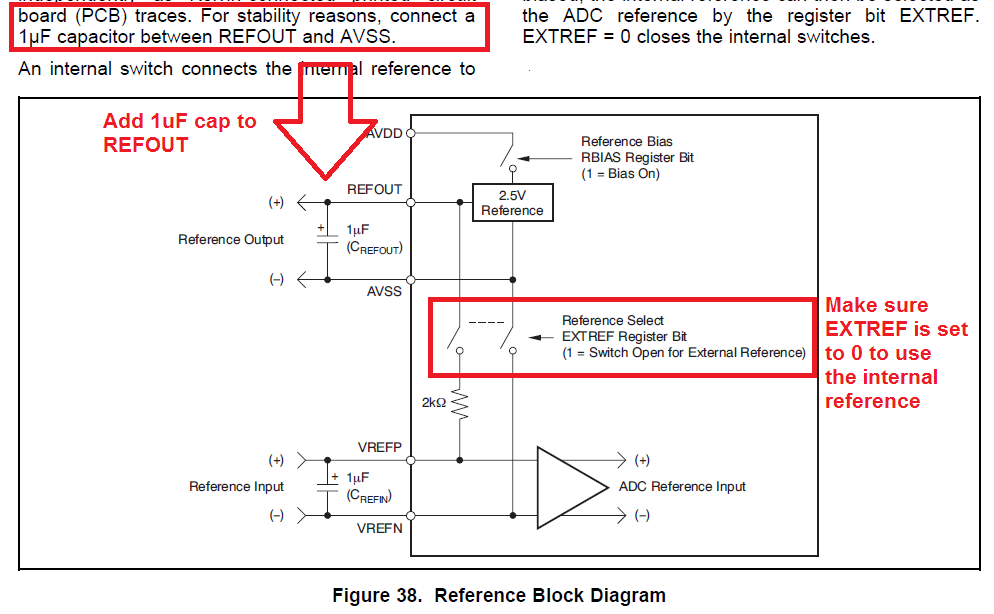Other Parts Discussed in Thread: MSP430F2619, ADS1259
I'm currently working on a tool that includes an ADS1259-q1 and msp430f2619 mcu. The ADS is taking 1 conversion/ms for 1 sec every 300ms. The chip is setup below and gives expected readings for the first 3-7 conversion periods* when tested with 2Vpp sine wave. After that, it stops sending data. After I reinitialize the ADS every other conversion period, data output resumes, but still skips 1-3 conversion periods before resuming.
Stepping through the code in CCS doesn't reproduce the issue. I noticed it while letting the program run while watching the DOUT ADS pin on oscilloscope. I'm not sure what the issue could be. This is my first post here, so let me know if I need to include anything else. Thank you for your time.
*Conversion period = the 1 sec where ADS takes 1 conversion/ms
MCU uses 16MHz external clock, The ADS SCLK uses SPI clock set to 2 MHz
----------------------------------------------------------------------
ADS Initialization/reinitialization Procedure:
Set RST pin (on ADS) low, then high again
wait 10 ms
SDATAC (0x11)
WREG from address 0h for 6 registers
CONFIG0 = 0x05 (default settings)
CONFIG1 = 0x00 (no external ref, all other settings default)
CONFIG2 = 0x17 (Pulse Control mode @ 14.4K SPS)
Offset registers set to 0x7fffff
RDATAC (0x10)
--------------------------------------------------------
ADS reading procedure:
for (index = 1ms; index < 1000ms; index++){
while (timer < index){
START ADS pin = high
wait 4 clock cycles
Start = low
wait 0.5 ms
UCA0TXBUF = 0x00 to request 8 bits of reading from ADS. SPI interrupt receives and processes
Repeat previous step two more times for full 24-bit reading.
}}





